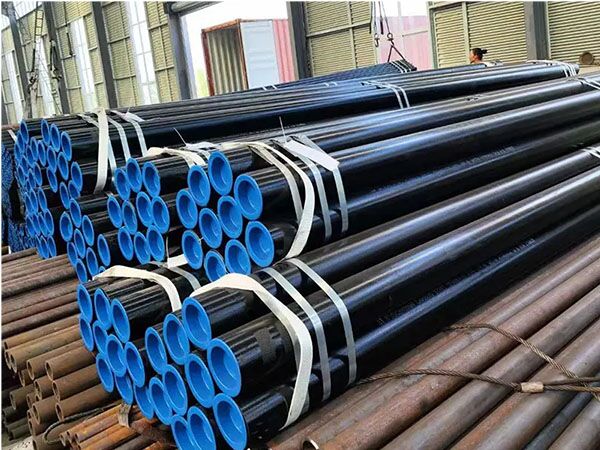API carbon steel pipes refer to
carbon steel pipe products that meet the standards of the American Petroleum Institute (API) and are mainly used in oil, natural gas and other transportation systems. The API 5L standard covers the dimensions, tolerances, chemical compositions, mechanical properties and inspection requirements of straight seam, spiral seam and seamless carbon steel pipes used in conveying pipelines.

The standard classification can be divided into:
API 5L X Grade: Suitable for high-pressure conveying, such as X42, X46, X52, X56, X60, X65, X70, X80, etc. The numbers represent the minimum yield strength (ksi).
API 5L PSL1 vs PSL2:
PSL1: Benchmark grade, suitable for regular conveying, without additional performance guarantee.
PSL2: Applicable to harsh working conditions, it requires more rigorous control of chemical composition, mechanical properties, non-destructive testing and manufacturing process control.
Performance parameters (taking PSL2 X52 as an example) :
Chemical composition:
Content (%) : Carbon ≤ 0.26, manganese 0.65-1.35, phosphorus ≤ 0.025, sulfur ≤ 0.025, silicon ≤ 0.15, chromium, nickel, molybdenum, etc. ≤ 0.50 (total).
Note: The chemical compositions of different X grades and PSL1/PSL2 vary slightly.
Mechanical properties:
Minimum yield strength (MPa) : 355, minimum tensile strength: 455-620, elongation: ≥ 22.
Common manufacturing processes:
Seamless pipe: Formed through hot rolling or extrusion, it features excellent radial uniformity and high-pressure performance.
Welded pipe
ERW (Electric Resistance Welding) : Cold-rolled billet strips are uncoiled and then welded. It is suitable for the manufacturing of small-diameter welded pipes, has economic benefits, and is suitable for large-scale production.
LSAW (Longitudinal Submerged Arc Welding) : Longitudinal welding of tube blanks after rolling is suitable for the manufacturing of large-diameter thick-walled tubes.
SSAW: It involves welding steel plates and steel strips in a spiral form, which is suitable for manufacturing super-large diameter steel pipes. However, its mechanical response and various irregular shapes are relatively obvious.
Related services
Central Steel provides inspection and coating services based on users' demands, aiming to offer customers an outstanding experience.
Detection and Experiment
Non-destructive testing: radiographic testing (RT), ultrasonic testing (UT), magnetic particle testing (MT), penetrant testing (PT), etc. PSL2 usually requires 100% RT or UT welds.
Hydrostatic test: It is conducted based on pipe grade and wall thickness. The common test pressure is 1.5 to 1.8 times the design pressure.
Mechanical tests: tensile, bending, impact (Charpy V-notch, in cold regions, -20 °C/ -30 °C may be required), etc.
Chemical analysis: Spectral or chemical reagent analysis to ensure that the components meet the standards.
Coating service
Inner and outer anti-corrosion coatings: epoxy resin, polyethylene (3PE/3PP), polyurethane, anti-corrosion asphalt, etc.
Coating and winding: Suitable for buried pipelines and underwater pipelines, enhancing corrosion resistance and service life.
Cathodic protection: Used in conjunction with coatings, common methods include sacrificial anode and external current protection.
Main application
Oil and gas transportation: long-distance pipelines, branch lines, gathering and transportation systems.
Water conveyance and municipal engineering: clear water, raw water, large-diameter water supply.
Structure and support: Petrochemical platforms, steel structure building support pipes.
